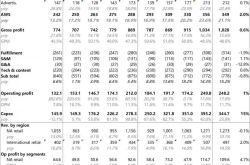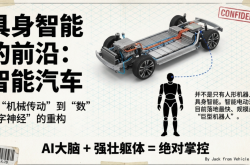Volkswagen's Layoffs: A Lingering Challenge
![]() 12/11 2024
12/11 2024
![]() 647
647
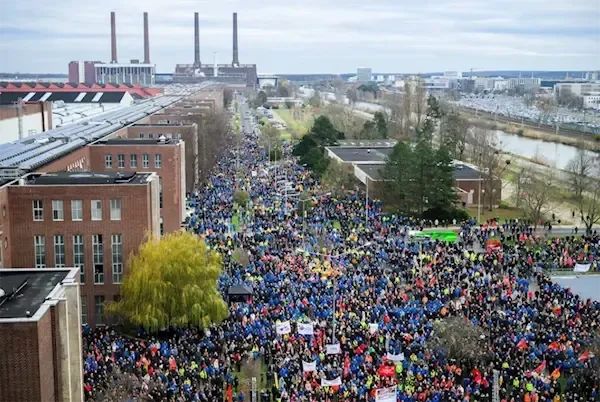
Negotiations and Strikes Intertwine
Author | Liu Yajie
Editor | Qin Zhangyong
You've undoubtedly heard about Volkswagen's plans to close factories and lay off employees.
Amid persistent protests and strikes by labor unions, Volkswagen Group is facing a tough time in Germany.
Even the German Chancellor has stepped in to urge Volkswagen not to shut down its plants.
The two sides have conducted four rounds of negotiations back and forth, with the most recent one held this Monday. During these talks, the labor union made concessions but still couldn't reach a consensus.
On one hand, the labor union remains steadfast in refusing to accept plant closures; on the other hand, Volkswagen states that it doesn't rule out the possibility of plant closures. The divergence between the two sides remains substantial.
Arne Meiswinkel, Volkswagen's chief negotiator, said, "After today's negotiations, it's clear that we're still far from a solution."
Clearly, this tug-of-war continues, and the next round of negotiations between the two sides is scheduled for next Monday.
01 Negotiations and Strikes Intertwine
This saga dates back to three months ago.
On September 2, local time, Volkswagen Group issued a statement that the company was considering closing one of its automotive manufacturing plants and one of its component plants in Germany for the first time, affecting Volkswagen Group's main passenger car brands.
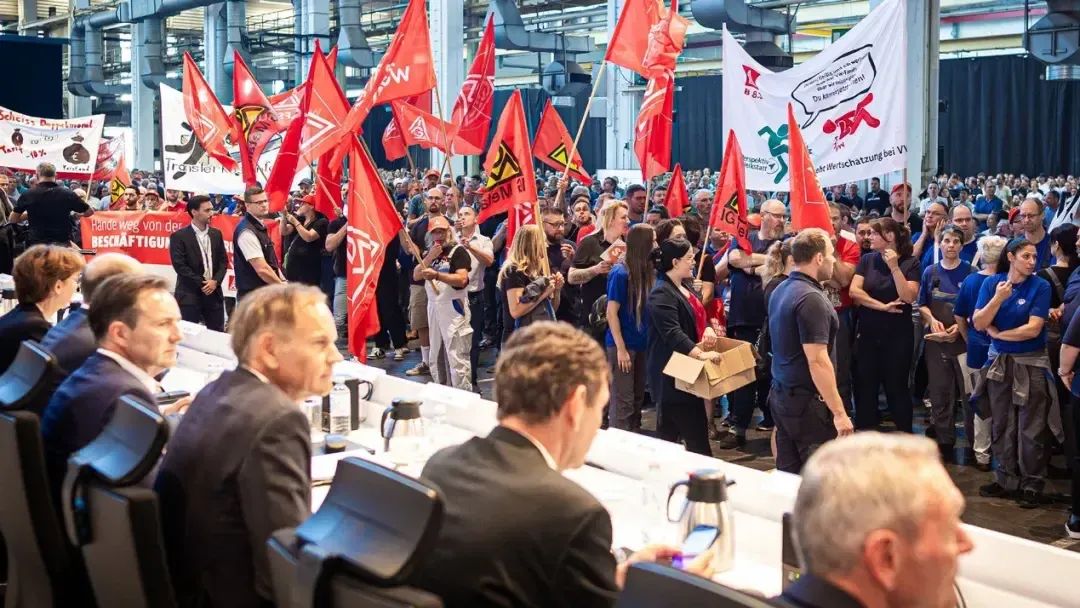
To ensure it can commence layoffs from mid-2025, Volkswagen also plans to rescind the employment protection agreement signed with the labor union, shattering the workers' job security.
At that time, Daniela Cavallo, chair of Volkswagen's works council, said that the council would "resolutely oppose" the board's proposal. IG Metall, the labor union, also issued a statement that it would resist any layoffs and plant closures.
On September 25, Volkswagen executives and the labor union conducted the first round of negotiations in Hanover, Germany. Hundreds of union members gathered there awaiting the outcome. From the scene, many were holding flags and whistling, obviously dissatisfied with management.
Thorsten Gröger, the chief negotiator of IG Metall, said, "We won't negotiate on plant closures and mass layoffs. If the Volkswagen Group insists on its cost-cutting plans, tens of thousands of colleagues will force the company back on track."
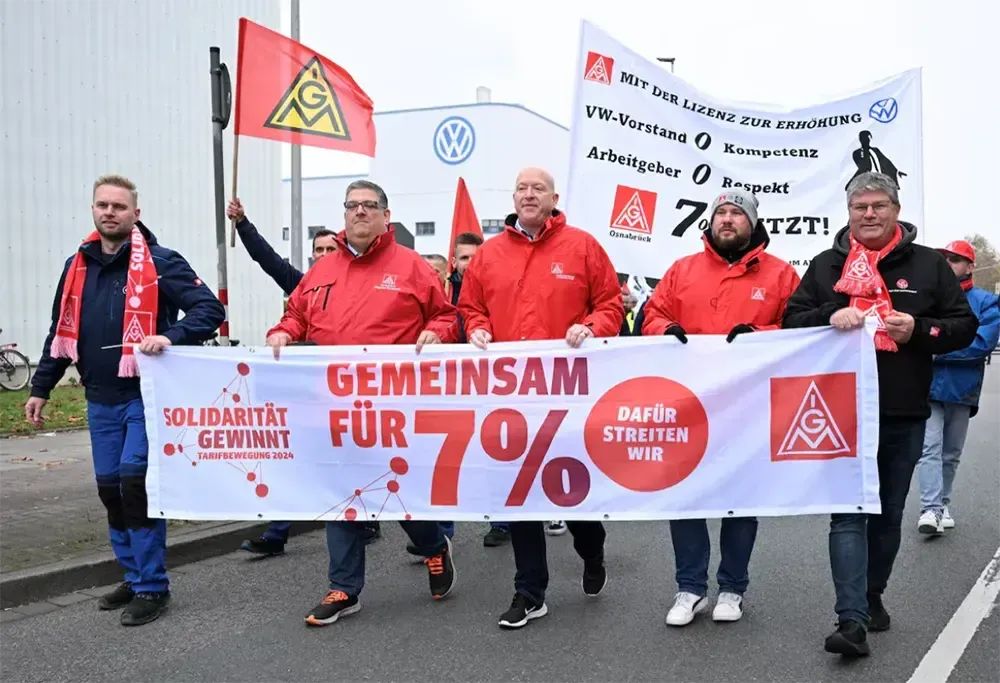
At that time, the two sides didn't reach an agreement. Volkswagen rejected IG Metall's demands for a 7% salary increase and a basic salary of €170 for apprentices and students.
On October 28, Volkswagen Group management made it clear that significant layoffs in Germany were necessary to maintain operations and planned to close at least three German plants, laying off tens of thousands of employees. Simultaneously, employees at plants that aren't closed will also face salary reductions. These measures will help Volkswagen save €4 billion (approximately RMB 30.5 billion).
These workers obviously wouldn't accept this. On the same day, workers participated in a strike rally. Thousands gathered in Wolfsburg, where the company's headquarters is located, to protest against the closure of any plant.
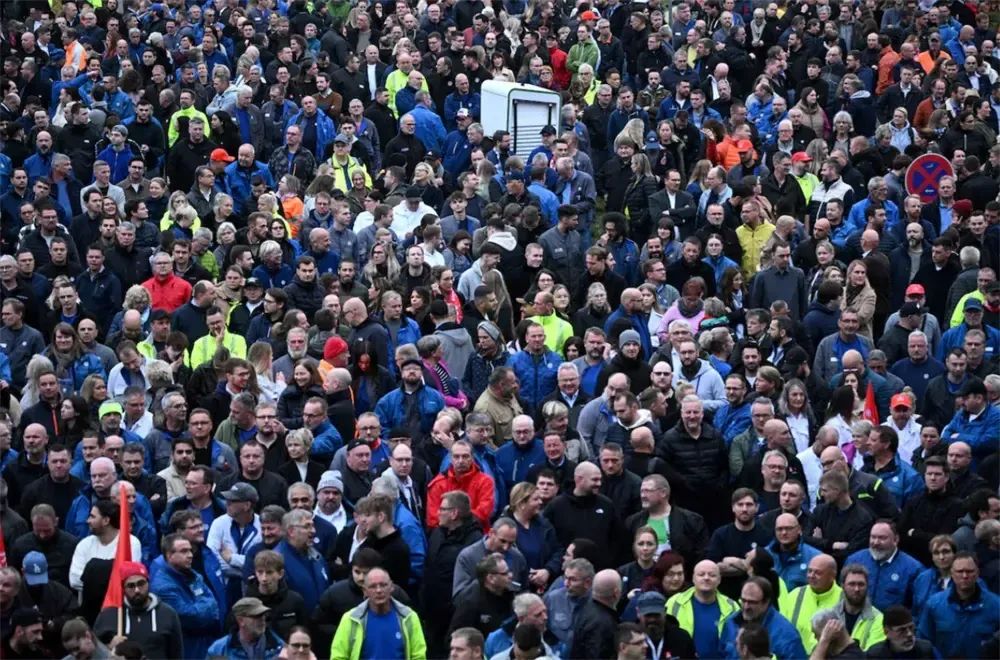
The workers' active protests didn't bring good news. Cavallo, chair of Volkswagen Group's works council, said that in addition to layoffs and plant closures, Volkswagen also plans to reduce employees' salaries by at least 10% and won't give employees a raise in 2025 and 2026.
On October 30, Volkswagen and the labor union held the second round of negotiations. The labor union demanded the continuation of the employment guarantee agreement, which Volkswagen rejected, leading to another failed negotiation.
02 Workers' Compromise and Resistance
On December 9, the fourth round of negotiations lasted eight hours, and neither side budged. Therefore, both sides planned to continue negotiations from December 16 to 17.
The negotiations are at an impasse because the outcome of the negotiations may redefine the priorities of labor relations.
The labor union is quite dissatisfied with the progress of these negotiations. Volkswagen employees, organized by IG Metall, launched a new round of warning strikes. This strike involved nine of the group's ten plants in Germany, with workers striking for four hours.
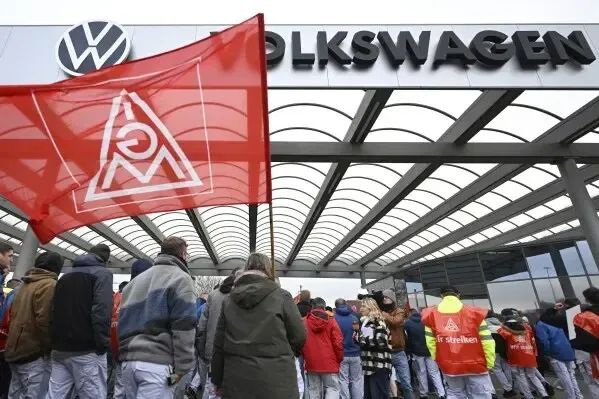
These workers have made concessions. On November 20, the day before the third round of negotiations between labor and management, perhaps due to reduced income from strikes and the pressure of living caused by German inflation, workers proposed a "sustainable plan":
Workers voluntarily forgo bonuses in 2025 and 2026 and use part of their salary increases due to age to establish a fund. During periods of overcapacity, they will voluntarily reduce working hours and support their families with money from this fund.
This plan can both preserve employees' jobs and save Volkswagen €1.5 billion. If Volkswagen agrees, everyone can put the past behind them. However, if Volkswagen insists on closing plants and laying off a large number of employees, workers will launch a larger-scale warning strike.
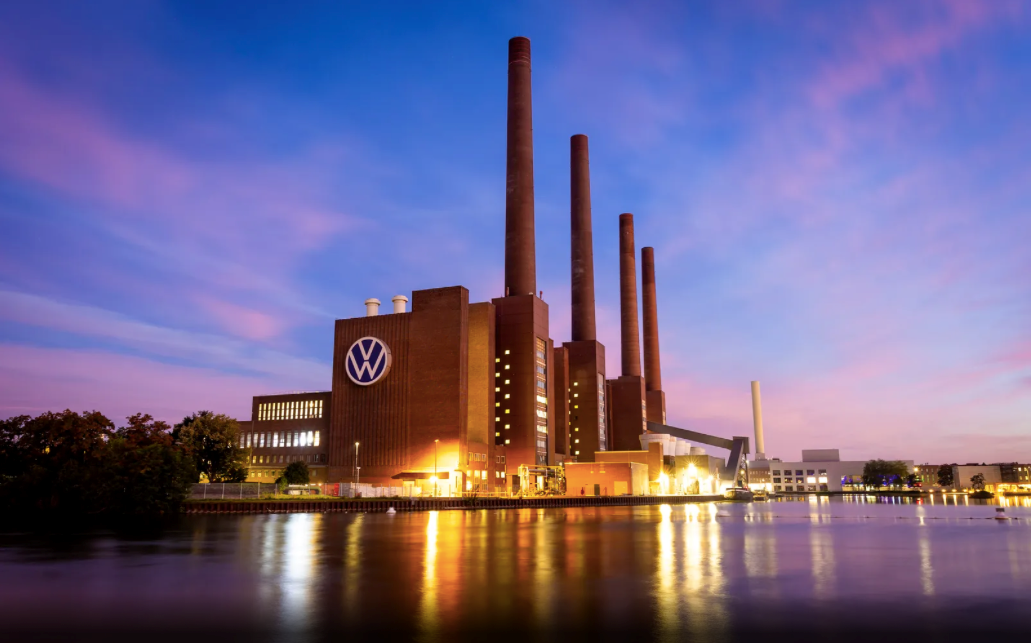
Business interests come first. After being at a stalemate for more than two months, one side compromises, and the other will inevitably take advantage of the situation. Additionally, Volkswagen Group has a much thicker financial foundation than individual employees and has more energy to endure. Therefore, it's not surprising that Volkswagen rejected the proposal, believing that the labor union only proposed this plan to delay time and still insisted on reducing employees' salaries by 10%.
At this time, the "peace obligation" agreement between Volkswagen and workers prohibiting strikes had expired, and almost all Volkswagen plants in Germany had the right to strike starting from December 2.
Therefore, the strike action launched on December 2 involved nine plants in Wolfsburg, Braunschweig, Hanover, Salzgitter, Emden, Kassel, and some subsidiaries, with about 120,000 employees participating. It was the largest strike in Germany since 2018.
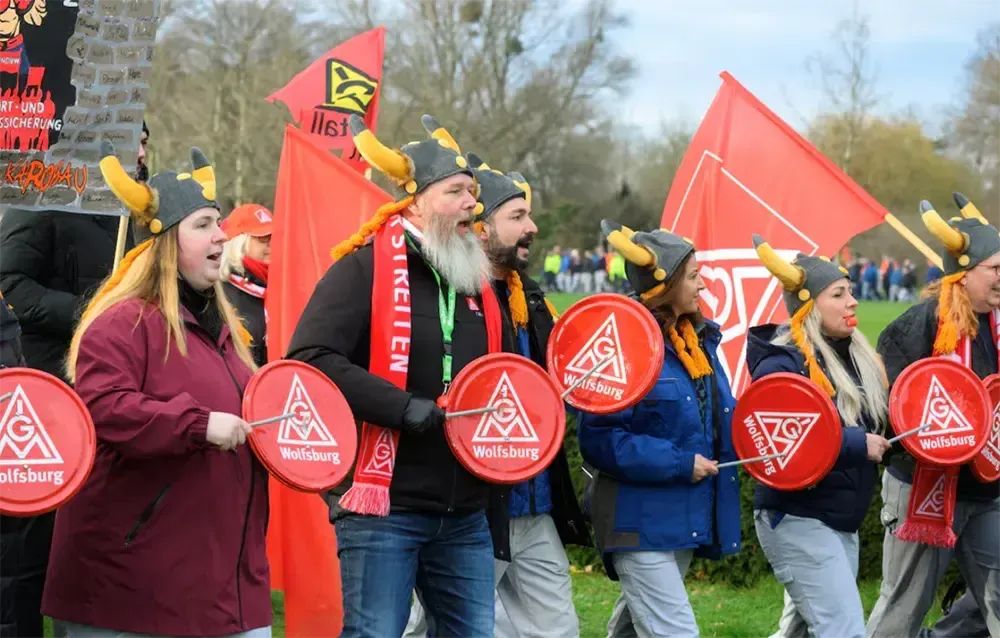
Workers began a two-hour strike. During the strike, morning shift workers struck for two hours, and evening shift workers planned to leave work early. The strike halted assembly lines, affecting the production of multiple Volkswagen models. Thousands of employees gathered at Volkswagen's largest plant in Germany, Wolfsburg, to protest salary reductions.
On December 4, local time, Volkswagen CEO Oliver Blume delivered a speech at an employee meeting, during which workers booed multiple times.
Hubertus Heil, Germany's Minister of Labor, also attended the meeting. He urged all parties to find a compromise solution to cancel plant closures or forced layoffs.
Obviously, the two sides haven't found one yet.
03 Why Has Volkswagen Come to This Point
Fundamentally, declining sales and plummeting profits are the root causes of Volkswagen's problems.
At the end of September, Volkswagen announced another downward revision of its annual performance forecast, reducing its global sales forecast for this year to around 9 million vehicles. Previously, it was expected that global sales in 2024 would increase by up to 3% from 9.24 million vehicles in 2023. This was the second reduction in three months. Volkswagen said that its passenger car division's performance was weaker than expected, and the pressure it faced continued to increase.
The frequent downward revision of performance forecasts is also due to poor sales.
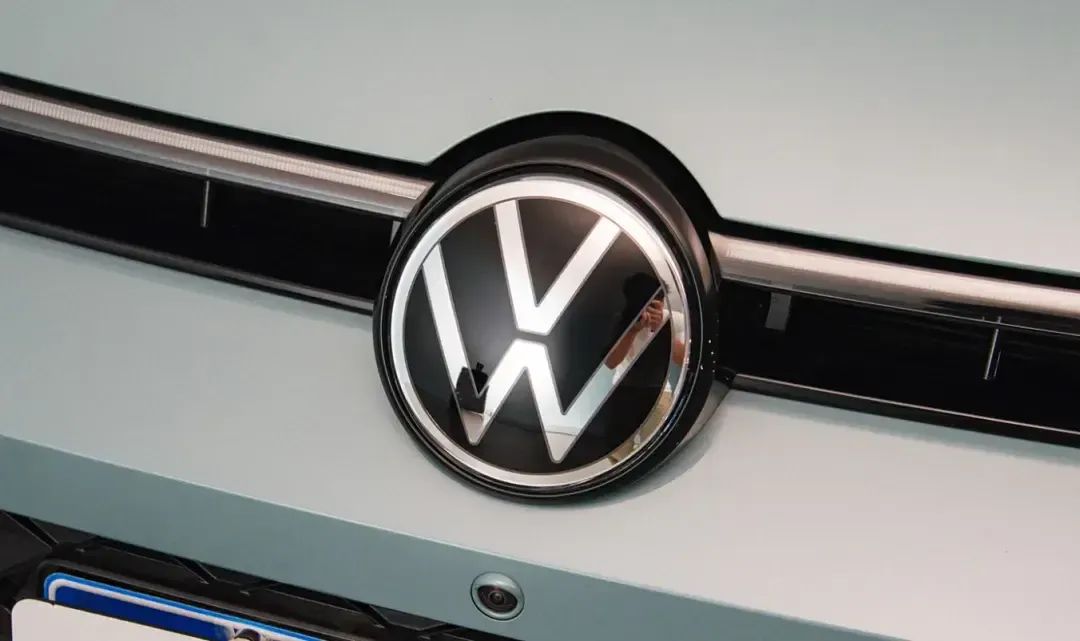
In the first three quarters of 2024, Volkswagen Group's global sales were 6.5243 million vehicles, a year-on-year decrease of 2.8%. Sales in the third quarter were 2.1763 million vehicles, a year-on-year decrease of 7.1%.
As Volkswagen Group's largest single market globally, China saw cumulative sales of 2.0566 million vehicles in the first three quarters of 2024, a year-on-year decrease of 10.2%, the largest sales decline. Additionally, Volkswagen's sales in Western Europe declined by 0.7% to 2.4244 million vehicles.
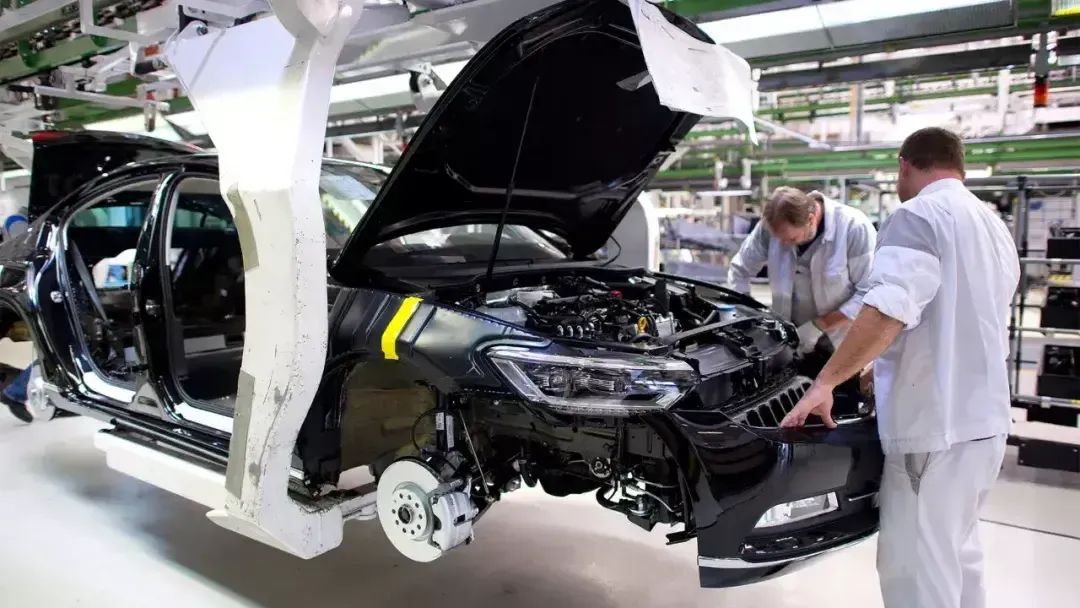
The sales decline in China is closely related to Volkswagen's slow electrification transformation. Due to price wars, Volkswagen has also experienced a situation of "increasing revenue without increasing profits".
In the first three quarters of this year, Volkswagen Group's revenue slightly increased from €235.102 billion in the same period last year to €237.279 billion.
However, operating profit fell significantly from €16.241 billion in the same period last year to €12.907 billion, a year-on-year decrease of 21%. The operating profit margin of Volkswagen Group's core Volkswagen brand was only 2.1%.
With overcapacity, weakening overseas demand, and many competitors eroding local market share in Europe, if Volkswagen doesn't focus on its employees, it will not only fail to reduce costs but will also struggle to afford future investments.
The reason why Volkswagen can't lay off employees as easily as other automakers is that it is too important and special to Germany. Half of the supervisory board seats of Volkswagen are held by labor representatives, and the German state of Lower Saxony, which owns 20% of the company's shares, often supports the labor union.
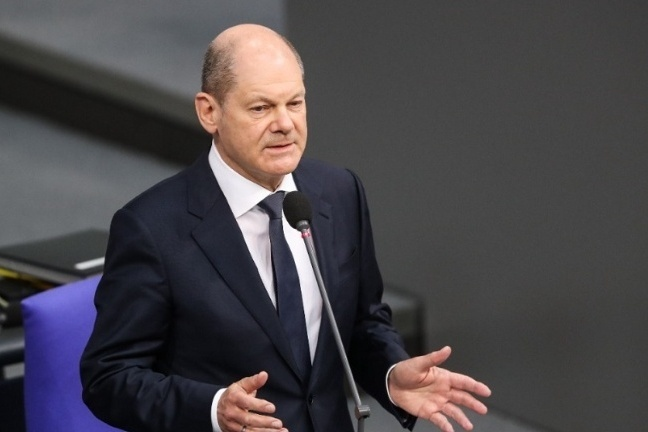
On December 7, local time, German Chancellor Olaf Scholz said that Volkswagen's plan to close several German plants was "incorrect." He believed that Volkswagen's current predicament was caused by mismanagement decisions and that the solution should be determined through negotiations between labor and management.
This was Scholz's first clear statement on the labor dispute at Volkswagen. Additionally, the governor of Germany's Lower Saxony, Volkswagen's second-largest shareholder, shares the same stance as Scholz, believing that all Volkswagen plants in Germany should be protected.
Therefore, in the face of the government's position, even if Volkswagen is stubborn, it dares not act rashly.
While dealing with the wave of strikes in Germany, Blume has placed his hopes for Volkswagen's overall transformation on China. Volkswagen is jointly building a new-generation electric platform with XPeng in Anhui, and many German employees have also moved their families to Anhui for work.
While seemingly pursuing both electrification development and cost reduction through layoffs, it remains a question how long it will take Volkswagen to find its place in the electrification field after this wave of strikes and layoffs.


